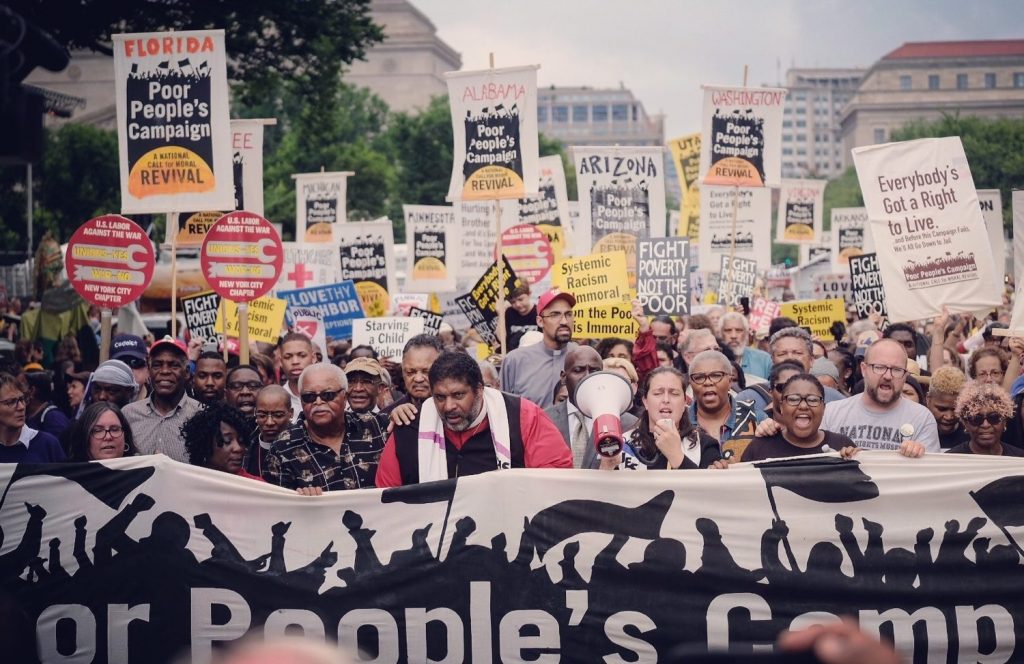By Pamela E. Ice
This week, the Rev. William J. Barber, II and the Rev. Dr. Liz Theoharis, co-chairs of the Poor People’s Campaign: A National Call for Moral Revival (PPC), released a report they hope will change how American politicians build their platforms and the issues they address as they campaign. Titled Unleashing the Power of Poor and Low-Income Americans: Changing the Political Landscape, the report, researched and written by economist and Assistant Professor of Social Work at New York’s Columbia University, Robert Paul Hartley, makes a few startling observations about poor and low-income eligible non-voters.
Hartley reports that, “In the 2016 presidential election, there were 138 million voters out of 225 million eligible voters. Twenty-nine million of these voters were poor or low-income and there were an additional 34 million poor or low-income people who were eligible, but who did not vote.
Hartley calculates that non-voting low-wealth people had the potential to change the outcome of the 2016 election if only candidates had bothered to address poor people’s issues in their campaigns. Rev. Barber says, “Not only is it immoral to ignore poor and low-income people, not only is it economically [foolish], it is political suicide to ignore them in 2020.” The PPC is currently waging concentrated voter registration drives in Texas and across the nation to get non-voting poor people prepared to vote in person or by mail in the November 3 election. The implications for this Fall’s candidates are clear: Ignore the issues of poor and low-wealth people in the next three months at your peril.

The issues of poor and low-wealth people include “health [care], jobs, wages, food, [and clean] water,” according to Shailly Gupta Barnes, in the report’s foreword. Denita Jones of Dallas agrees, “My government is failing me and millions like me. We need higher wages, better workplace protections, lower rents, access to quality affordable health care, and fresh healthy food. Real freedom means not having to choose between your health and your rent.” Jones continued, “This [Covid-19] crisis just takes the Band-Aid off a wound that has been festering for too long. It’s time to apply some UV light and disinfectant to the wound of inequality in this country.”
NDG 8/20 issue: Voter Suppression. The Birth of Apathy.
Another person involved with the PPC, Lauren Simmons who lives in Houston’s Third Ward says, “Covid-19 has impacted our community physically, financially and emotionally. I have seen it up close and personal because I tested positive. I’m not surprised how poorly our [Texas] leaders have handled this issue, especially considering that we have the most uninsured people in this state.” Simmons added, “I’m also disturbed by the push to have children [and] school employees return to campuses that were already underfunded and ill equipped pre-Covid.”
NDG 7/13 issue: The more things change the more they stay the same
Dr. Jennifer Wimbish, a member of the Texas PPC Steering Committee and co-chair of the Dallas Poor People’s Campaign noted that the report indicates that “the issues of poor people should be front and center in terms of discussions of those seeking to win in November.”
Unleashing the Power of Poor and Low-Income Americans: Changing the Political Landscape can be found at poorpeoplescampaign.org.




